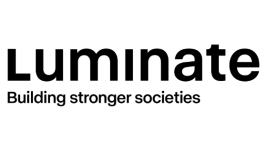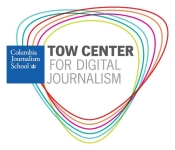
The Journalism and the Pandemic Project from the International Center for Journalists (ICFJ) and the Tow Center for Digital Journalism at Columbia University is mapping the impacts of COVID-19 on journalism worldwide, in order to inform responses to the crisis and help to reimagine journalism’s future.
The Project’s first survey was conducted in mid 2020, as the pandemic set in, and drew responses from more than 2,000 journalists in 145 countries across seven languages
Findings from 2020
The first 30 findings published from the Journalism and the Pandemic Project at the end of 2020 highlighted COVID-19’s devastating impacts on journalism through an analysis of responses from more than 1,400 English-speaking survey participants in 125 countries. When we analyzed the complete set of 2,000 responses in six languages, we found that the impacts and needs identified were remarkably similar across the cohorts.
Our research during COVID’s first wave identified several main areas for concern: the interlinked issues of threats to the safety of journalists (including a significant COVID-era mental health crisis), media freedom erosion, the pernicious role of disinformation in the information ecosystem, and the viability and sustainability challenges confronting the news media. Key findings include:
- Politicians and elected officials were identified by 46% of respondents as a top source of disinformation.
- 81% said they encounter disinformation at least weekly, with more than one-quarter identifying false information many times a day.
- Facebook was identified as the most prolific spreader of disinformation.
- Nearly half said their sources had expressed fear of retaliation for speaking to journalists during the pandemic.
- 30% said that their news organizations had not supplied field reporters with a single piece of protective equipment during the first wave of the pandemic.
- 70% identified the mental health impacts of covering COVID-19 as the most difficult challenge.
The report is also available in Arabic, French and Spanish.
Recommendations for action
Based on an analysis of data from the first phase of the Project, including insights from roundtable discussions with state and civil society donors conducted in 2021, the Journalism and the Pandemic Project developed the following preliminary recommendations. They are designed to aid governments, donors and civil society organizations seeking to respond effectively to the impacts of COVID-19 on independent journalism globally.
- Prioritize democracy-reinforcing and counter-disinformation projects and programs (with a focus on critical independent journalism).
- Make grants conditional on meeting journalism safety requirements.
- Urgently address the mental health crisis affecting journalists and news organizations.
- Address the online violence crisis, which is being exacerbated in the context of COVID-19.
- Prioritize investment in collaborative/networked journalism initiatives.
- Focus on medium- to long-term investment to address the pandemic’s ongoing effects on journalism.
- Tailor support according to the size of the independent news organization.
- Invest in programs that support innovation in crisis management within news organizations.
- Bake research into projects/programs to help transfer and embed knowledge globally.
- Explore hybrid journalism-civil society journalism projects which can help effect social change and achieve sustainable development where the need exists.
- Convene funders while ensuring the ‘social distancing’ of the platforms and their corporate objectives.
- Invest in projects that help maximize trust and help defend independent journalism from campaigns designed to discredit and tarnish reliable, factual reporting.
- Invest in projects and outlets which emphasize diversity - in terms of staffing, thematic reporting and audience development.
- Convene journalists physically as we ‘reopen’ societies, as it is safe to do so.
For more information, or to express interest in collaborating as a research partner, please contact the research project’s lead Dr. Julie Posetti, ICFJ’s Deputy Vice President of Global Research (JPosetti@icfj.org), and Nabeelah Shabbir, ICFJ’s Senior Research Associate (NShabbir@icfj.org).
We are grateful to the global philanthropic organization Luminate for their support with this project.



